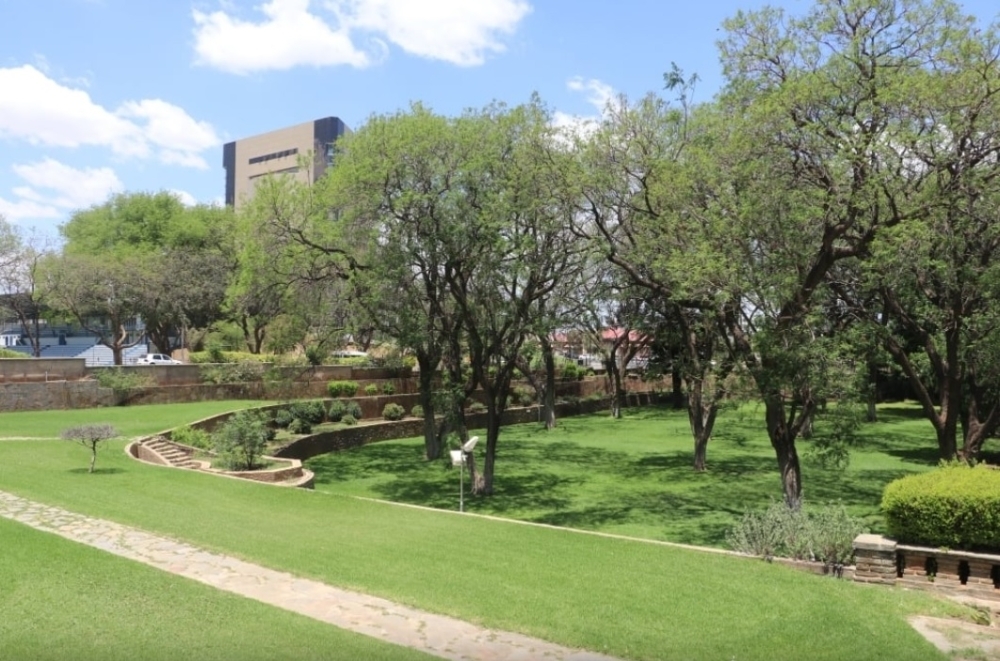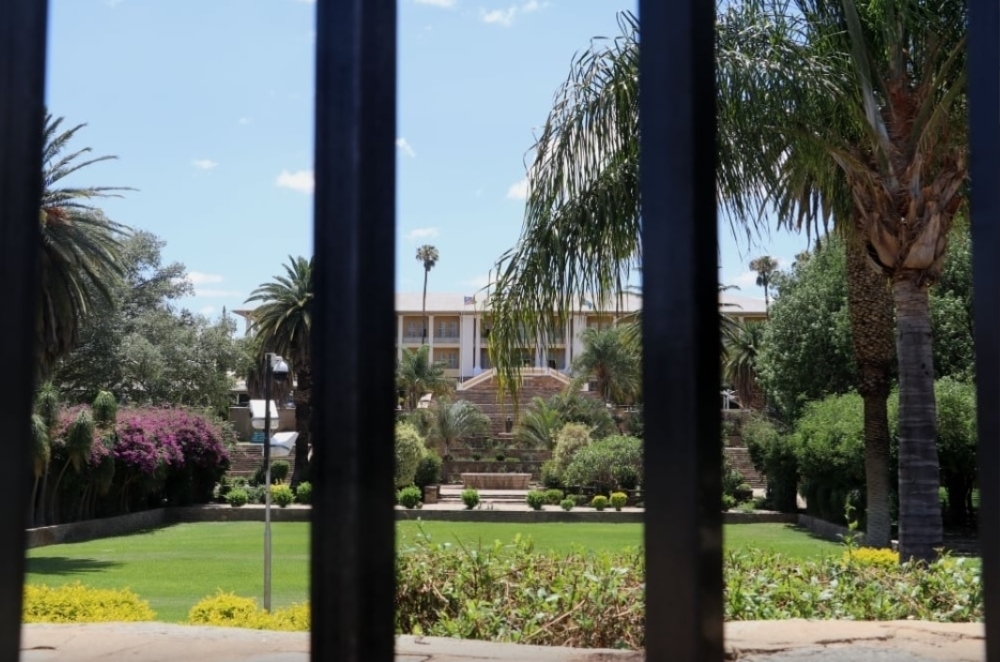“The garden is of utmost importance to people. As a therapeutic open space that allows families to spend time together in a safe environment, which improves people's mental state and helps them to socialize. We have to show the authorities that we want access to the gardens again.”
So reads a petition demanding that the parliament gardens in Windhoek be reopened to the public.
“The parliament gardens are one of the few green spaces we have in the capital. We grew up with family picnics in the garden. We took our matric farewell and wedding photos in the gardens. It is high time that the park is opened to us again. The gardens have been closed for long enough,” is one of the comments on the petition that more than 600 people have already signed.
“The gardens are part of us and a very beautiful place in nature that we urgently need for our mental health, especially these days. It was a safe and beautiful place where different cultures could come together.”
The gardens were closed to the public in 2017 to allow the plants to recover. In 2021, a fence was erected around the garden. At the time, the chief spokesperson of the National Assembly (NA), David Nahongandja, said the purpose of the fence is to tighten access control to the premises where the offices of the Prime Minister, Foreign Affairs, the Ministry of Information and Communication Technology and the SADC Parliamentary Forum are based.
“The new fence with its barbed wire also helps to curb vandalism and protect the plants,” Nahongandja said.
Public space
“The parliament gardens are a public park that the government owns on behalf of all citizens. It is maintained with public money and is essentially a public space or common property, owned by all of us and accessible to all of us,” Dr Phillip Lühl, head of the department of architecture, planning and construction of the Namibia University of Science and Technology (NUST), said.
“In a democratic society it is of critical importance to have such spaces where everyone has the right to be free and speak, without interference, and independent of our background or socio-economic standing,” he said.
“While the recreational aspect of the park - as one of the few well-maintained parks in the city - is important for individuals and communities, it is the political aspect of the park as a democratic public space that is fundamental.
“It appears that the 2020 #ShutItAllDownNamibia protests at Parliament resulted in the recent fencing of the park due to ‘security reasons’ which should not override public access. Other security measures can instead be taken where necessary, but the right to freedom of association and a freedom of speech must be given space,” said Lühl.
So reads a petition demanding that the parliament gardens in Windhoek be reopened to the public.
“The parliament gardens are one of the few green spaces we have in the capital. We grew up with family picnics in the garden. We took our matric farewell and wedding photos in the gardens. It is high time that the park is opened to us again. The gardens have been closed for long enough,” is one of the comments on the petition that more than 600 people have already signed.
“The gardens are part of us and a very beautiful place in nature that we urgently need for our mental health, especially these days. It was a safe and beautiful place where different cultures could come together.”
The gardens were closed to the public in 2017 to allow the plants to recover. In 2021, a fence was erected around the garden. At the time, the chief spokesperson of the National Assembly (NA), David Nahongandja, said the purpose of the fence is to tighten access control to the premises where the offices of the Prime Minister, Foreign Affairs, the Ministry of Information and Communication Technology and the SADC Parliamentary Forum are based.
“The new fence with its barbed wire also helps to curb vandalism and protect the plants,” Nahongandja said.
Public space
“The parliament gardens are a public park that the government owns on behalf of all citizens. It is maintained with public money and is essentially a public space or common property, owned by all of us and accessible to all of us,” Dr Phillip Lühl, head of the department of architecture, planning and construction of the Namibia University of Science and Technology (NUST), said.
“In a democratic society it is of critical importance to have such spaces where everyone has the right to be free and speak, without interference, and independent of our background or socio-economic standing,” he said.
“While the recreational aspect of the park - as one of the few well-maintained parks in the city - is important for individuals and communities, it is the political aspect of the park as a democratic public space that is fundamental.
“It appears that the 2020 #ShutItAllDownNamibia protests at Parliament resulted in the recent fencing of the park due to ‘security reasons’ which should not override public access. Other security measures can instead be taken where necessary, but the right to freedom of association and a freedom of speech must be given space,” said Lühl.






